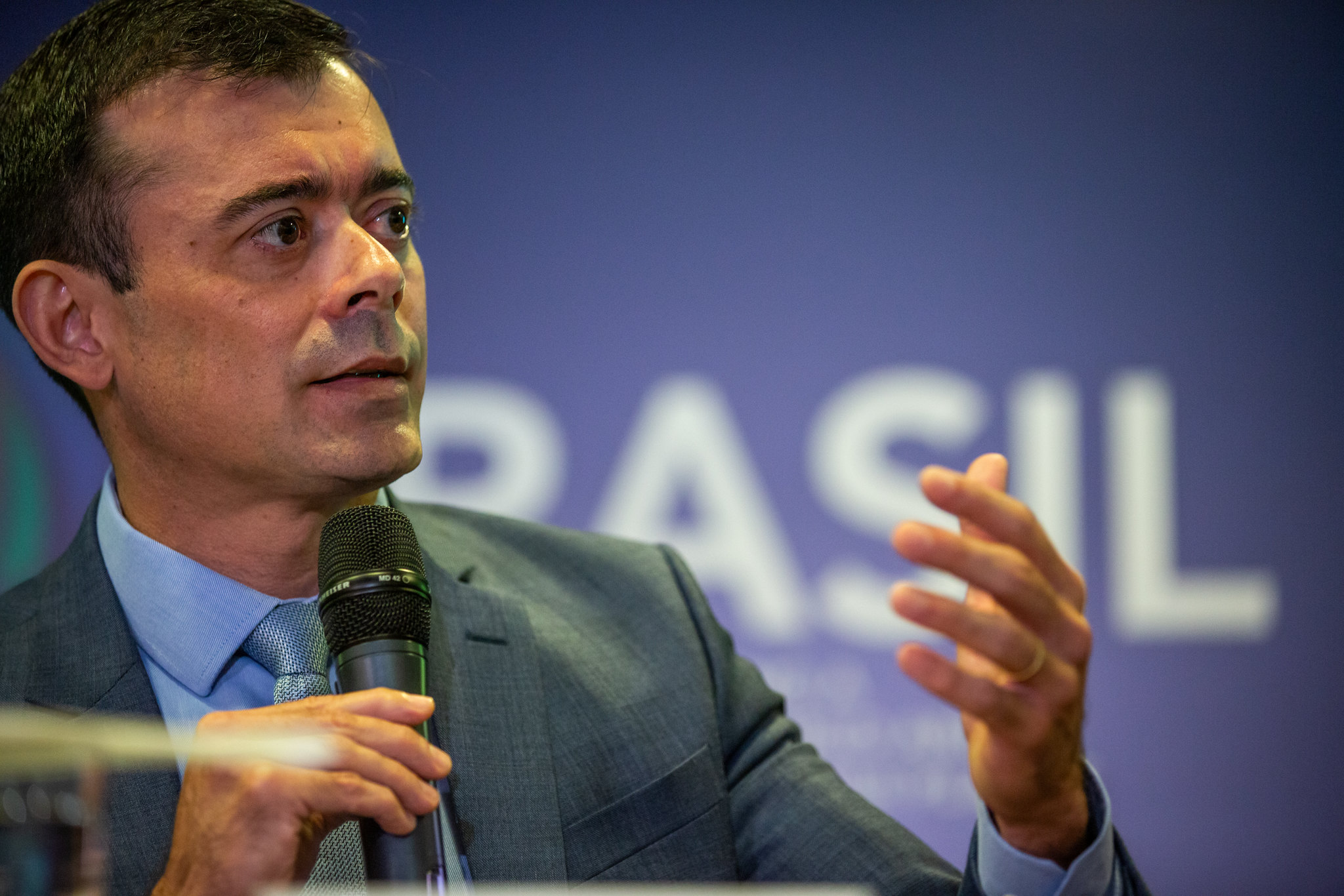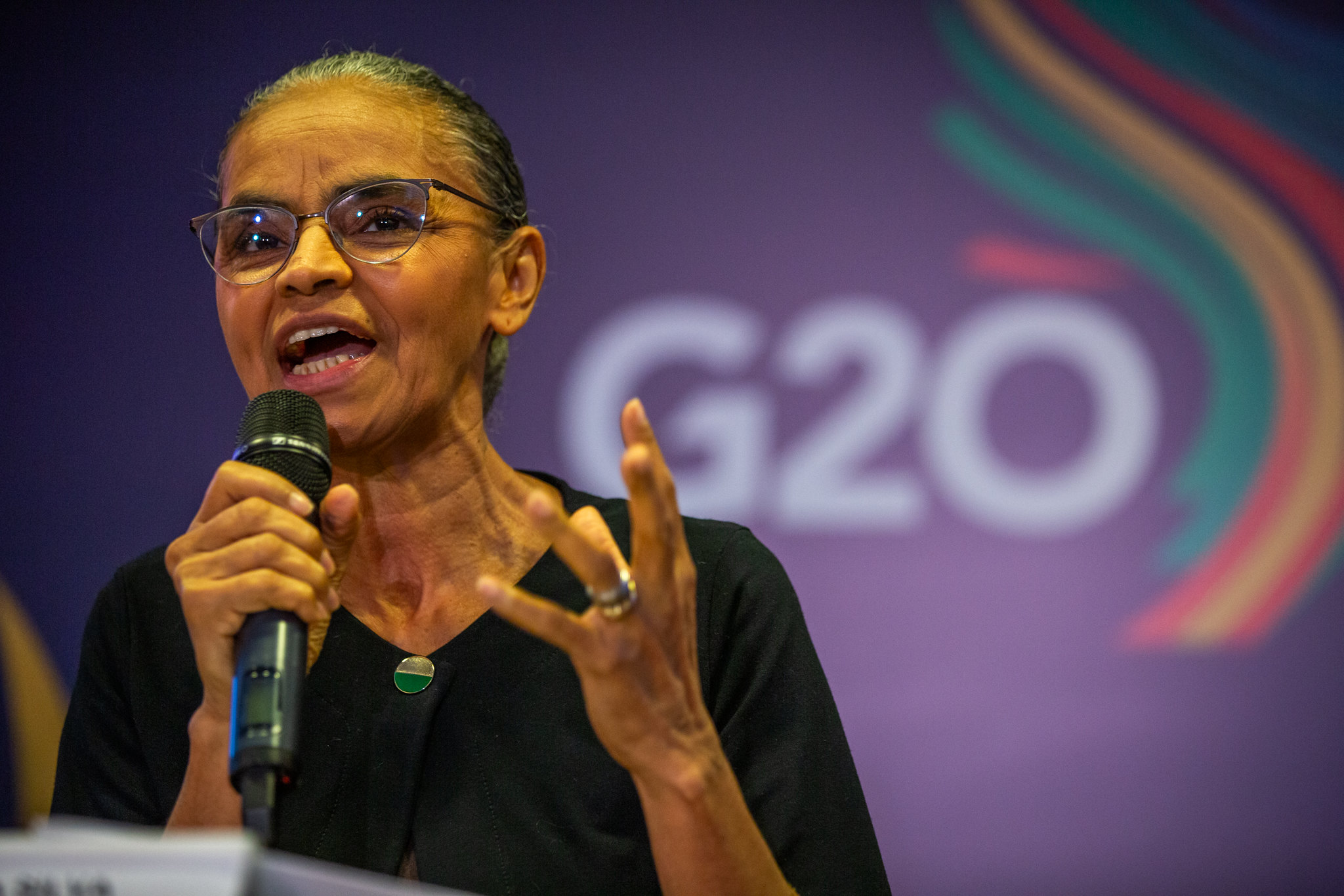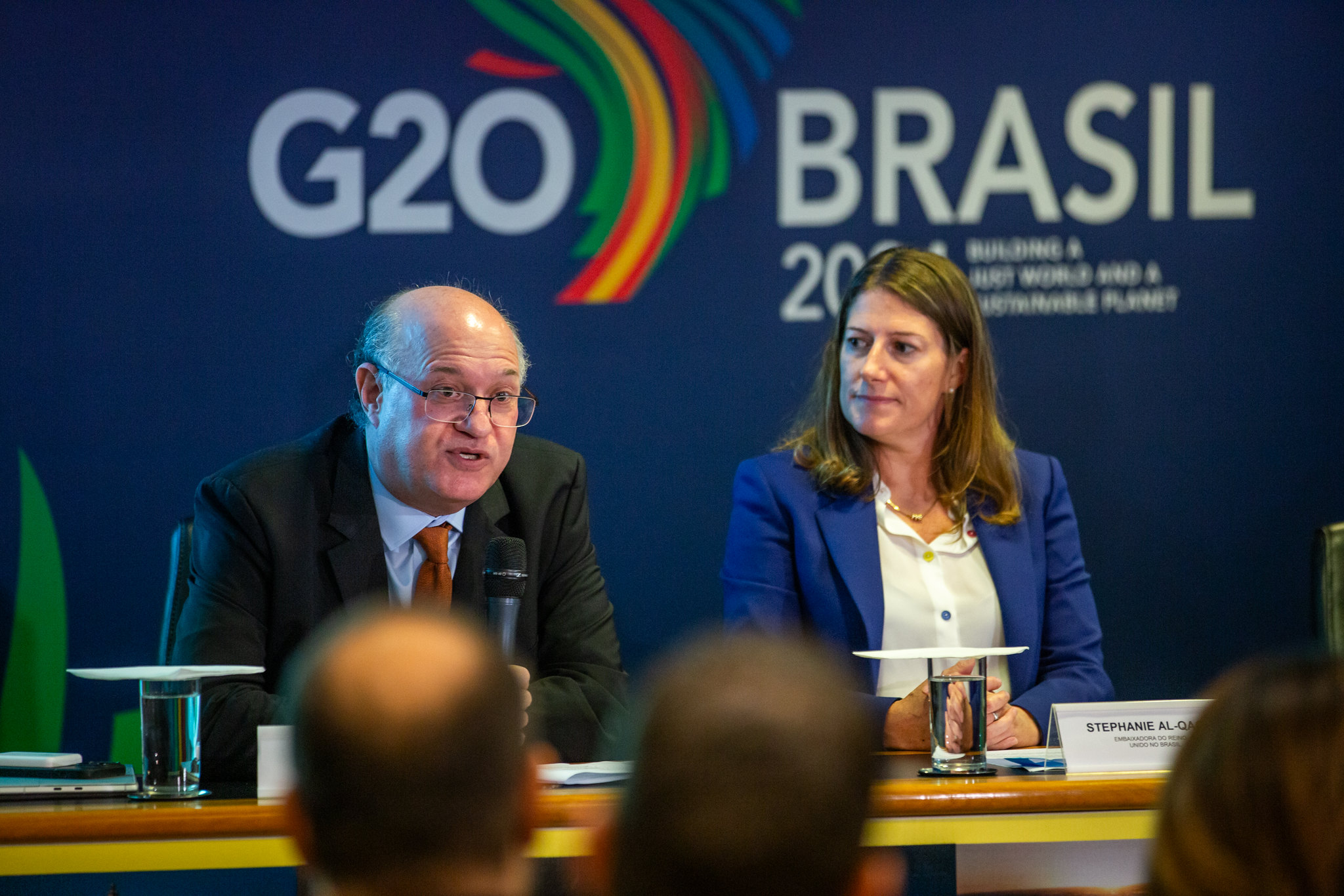Brasil is to invest R$27 billion in ecological transition with international support
Partnership between the Brazilian government, the World Bank and the IDB aims to promote a green economy and attract foreign investment. International cooperation seeks to strengthen climate finance and create a favorable environment for sustainable investments in the country.

"The time to take advantage of this window is now," defended Rogério Ceron, Secretary of the National Treasury (STN), during the presentation of the Foreign Private Capital Mobilization and Exchange Protection Program - Eco Invest Brasil, on Monday, February 26, in São Paulo. Through international cooperation, the Brazilian government will set aside R$27 billion to boost private investment in sustainable transition projects, responding to Brasil's priority in the forum being debated by the G20's Sustainable Finance working group.
The cooperation aims to encourage foreign investment in sustainable projects in the country and to offer exchange rate protection solutions, so that the risks associated with exchange rate volatility are reduced and do not disrupt these investments, which are so crucial to Brasil's ecological transformation.
Ceron recalled that the transition to a low-carbon economy is a global necessity, that economies are making efforts to make this transition and that the moment is crucial and favorable for Brasil as a unique economic and strategic opportunity. "80% of our energy matrix is already clean, which means that the country has a very significant competitive edge and, from this, can develop an entire economy. We need to immediately take advantage of this timeframe so that we don't miss out on this historic opportunity that Brasil fortunately has the chance to have," emphasized the secretary.
The STN secretary also explained that the economies of the Global South are fundamental to the processes of ecological transition, but have the lowest private capital effort. "It's notorious that in the Brazilian case, and that of other emerging economies, domestic investment won't be able to cope with all the necessary effort. It is essential to attract foreign savings to the country in order to resolve these issues," explained Ceron.
Marina Silva, Minister of Environment and Climate Change (MMA), pointed out that the timing of the debate is especially important because the G20 member countries hold 80% of the world's financial and technological resources, while they also account for almost 80% of emissions of CO² (carbon dioxide), currently approximately 31 billion tons.
"The challenge of the ecological transformation that Brasil and the world need won't happen if we only have the hub of public investment. We'll have to combine it with private investment, and that's what will make the difference. If we correctly integrate the efforts of the public and private sectors, we can make a difference in an agenda that is strategic to the balance of the planet and the maintenance of life," said Silva.

Joint effort
Eco Invest Brasil was developed in a partnership between the Brazilian Ministry of Finance and the Central Bank of Brasil (Banco Central do Brasil - BCB), with resources and technical support from Inter-American Development Bank (BID) and World Bank (BM), within the framework of the Brasil's Ecological Transformation Plan.
According to Ilan Goldfajn, president of the IDB, the bank acted as a technical partner in designing the operationalization of the derivatives packline and the operationalization of the credit line. "We supported the program on two sides: one with US$3.4 billion, to help with the issue of derivatives and options; and another with US$2 billion, to provide liquidity to companies. A total of R$27 billion will be made available by the IDB to support the development, liquidity and efficiency of the country's foreign currency protection market, by purchasing derivatives on the foreign market and passing them on to local financial institutions," explained.
Roberto Campos Neto, president of the Central Bank of Brasil (Banco Central do Brasil - BCB), pointed out that, in the Program, the BCB signs a letter of intent with the IDB, by means of an ISDA Master Agreement, to intermediate foreign exchange protection for investments in ecological transition projects. "It's an important initiative, a milestone, and we need to unblock this agenda. Brasil is a country with enormous environmental potential. This issue is our business card for investment in the next few years," analyzed.
International cooperation

The program also includes the signing of a memorandum of understanding between the MMA, MF, BCB and World Bank, also supported by the United Kingdom, a long-standing partner of the Brazilian government in actions to produce clean energy and stimulate the green economy.
"We will focus our efforts on climate finance in order to prospect and optimize the resources needed to combat the effects of climate change in the country and promote the decarbonization of the economy. We are working on a new loan with the objective of allocating up to one billion dollars to the Climate Fund, with an initial focus on forests, green and resilient cities and solid waste management," announced Felipe Jaramillo, World Bank Vice President for the Latin American region.
Stephanie Al-Qaq, the UK's ambassador in Brasil, also announced that the country will donate US$1 million for the creation of the exchange network platform that composes the Brazilian initiative. "This project is important for tackling the currency risks that can be a barrier to international investment. We can't let this stand in the way of Brasil's ambitions and serve as an example to other countries. Pioneering innovations like this are the key to building a bigger, better, bolder and fairer international financial system for those who need it the most, bringing advantages for a new cycle of prosperity," concluded.
Photographic records will be available at: https://www.flickr.com/photos/g20brasil24/albums/ and https://www.flickr.com/photos/ministeriodaeconomia/